Hydrogels for biomedical applications: frontiers in research and translation
9 May 2021, Sunday
14:00-15:50 (London); 9:00-10:50 (New York); 21:00-22:50 (Beijing)
Zooming info:
https://swanseauniversity.zoom.us/j/8266570519?pwd=aXdrN1pOUFhqSFlSYlFkQjVvNDRHQT09
Meeting ID: 826 657 0519
Passcode: 718288
Join by SIP: 8266570519@zoomcrc.com
Join by H.323: 162.255.37.11 (US West)
Forum Chair:Prof. Bin Li (Soochow University, China)
Opening Remarks and Introduction (10 min)
Prof. Bin Li
Soochow University, China
In situ assembled microgel scaffolds: An emerging generation of injectable microporous hydrogels for accelerated tissue regeneration (15min)
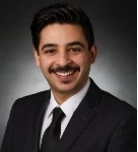
Prof. Amir Sheikhi
Penn State University, USA
Cell mechanosensing in dynamic hydrogels (15min)
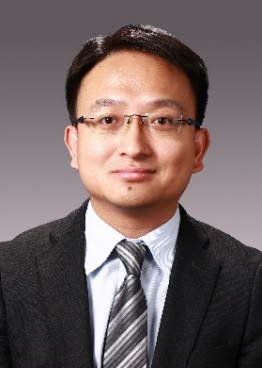
Prof. Liming Bian
Chinese University of Hong Kong, China
Molecularly imprinted polymer nanogels - synthetic antibody mimics inhibiting cell adhesion (15min)

Prof. Karsten Haupt
Compiegne University of Technology, France
Enzyme assisted peptide folding for the construction of bioactive hydrogels (15min)
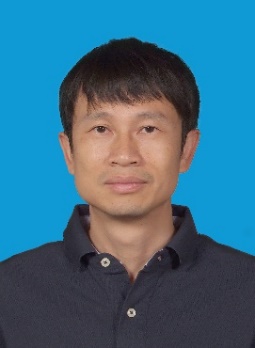
Prof. Zhimou Yang
Nankai University, China
JellaGel – The latest innovation in 3D cell culture (15min)

Dr. Andrew Mearns-Spragg
Jellagen, UK
Discussion + Q&A (25 min):
Panelists (Alphabetically):
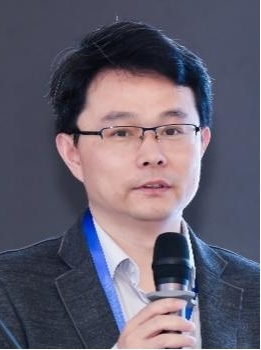
Prof. Jun Fu
Sun Yat-sen University, China
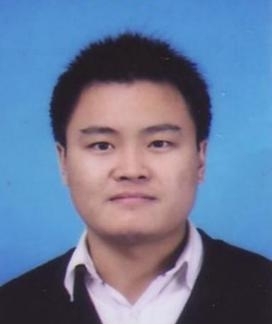
Prof. Guoqing Pan
Jiangsu University, China
Introduction of Next Forum (6th June)
Professor Chaozong Liu
University College London, UK
Organizing Committee (Alphabetically):
Prof. Xu Cao
Department of Orthopaedics, Johns Hopkins University, USA
Prof. Xiaodong Guo
Department of Orthopaedics, Wuhan Union Hospital, China
Prof. Bin Li
Institute of Orthopaedics, Soochow University, China
Prof. Zengwu Shao
Department of Orthopaedics, Wuhan Union Hospital, China
Prof. Qian Wang
University of South Carolina, USA
Dr. Zhidao Xia
Swansea University Medical School, Swansea, UK
Prof. Weihua Xu
Department of Orthopaedics, Wuhan Union Hospital, China
Brief CV of Prof. Liming Bian
Chinese University of Hong Kong, China
Prof. Bian has been appointed as the Changjiang Scholar Professor in the School of Biomedical Sciences and Engineering in the South China University of Technology after serving as a tenured professor in the Department of Biomedical Engineering at the Chinese University of Hong Kong. Prof. Bian completed his Ph.D. study in Biomedical Engineering at Columbia University in 2009. Prof. Liming Bian then conducted his postdoctoral research in the Department of Bioengineering, the University of Pennsylvania from 2009 to 2012. Prof. Bian’s research focuses on the development of novel multiscale biomaterials not only for investigating the role of cell microenvironment factors on stem cell behaviors but also for facilitating the regeneration of diseased or injured tissues and organs. Prof. Bian’s research work has been published in the leading journals including Science Translational Medicine, PNAS, Nature Communications, Science Advances, Advanced Materials, JACS, Nano Letters, Biomaterials, Advanced Functional Materials, Advanced Science, ACS Nano, ACS Central Science.
Brief CV of Prof. Karsten Haupt
Compiegne University of Technology, France
Prof. Karsten Haupt studied Biochemistry at the University of Leipzig, Germany, where he received an MSc Degree in 1991. In 1994 he obtained his PhD in Bioengineering from Compiègne University of Technology, France. He then spent three years as a research fellow at Lund University, Sweden, where he worked on molecular imprinting with Klaus Mosbach. Back in France he has been a researcher at INSERM, Paris, before joining the University of Paris 12 as an associate professor in 1999. In 2003 he was appointed full professor of Nanobiotechnology at Compiègne University of Technology (UTC), France, where he is the Head of the Institute for Enzyme and Cell Engineering. He is also one of the founders and scientific advisor of the French company PolyIntell that commercializes molecularly imprinted polymer-based products for biomedical, food and environmental analysis. His present research interests include affinity technology, chemical and biosensors, molecularly imprinted polymers and synthetic receptors, biomimetic polymers and nanostructured materials for biomedical applications, including drug delivery, medical treatment and diagnostics.
Brief CV of Prof. Zhimou Yang
Nankai University, China
Prof. Zhimou Yang was born in 1978 in Guangdong Province, China. He received his BS from Nanjing University in 2001. He obtained his PhD in 2006 from the Hong Kong University of Science and Technology under the supervision of Professor Bing Xu. Before starting his independent research at Nankai University in March 2009, he was a postdoctoral fellow with Prof. Matthew Bogyo at Stanford Medical School. His research interests focus on biomedical applications of peptide-based hydrogels including hydrogels of drug-peptide amphiphiles for drug delivery, hydrogels of bioactive peptides for tissue engineering, and hydrogels as vaccine adjuvants, etc. He has published more than 100 corresponding authored papers in the field of peptide self-assembly. He obtained the National Science Fund for Distinguished Young Scholars from National Natural Science Foundation of China in 2018.
Brief CV of Prof. Andrew Mearns-Spragg
Founder & CSO, Jellagen, UK
Dr. Andrew Mearns-Spragg holds a first-class BSc degree in Microbiology and PhD in Marine Biotechnology from Heriot-Watt University, Edinburgh. Andrew was awarded a Royal Society of Edinburgh Enterprise Fellowship at St. Andrews University in 2000 to support the creation of his first marine biotechnology enterprise.
Andrew was elected a member of the Royal Society of Edinburgh’s Young Academy from 2011 – 2015 and holds Honorary Professorships from the University of Stirling (2012-2016) and University of the Highlands and Islands. He is a Fellow of the Royal Society of Chemistry and the Royal Society of Biology.
Andrew founded Jellagen in 2013, where he raised more than £6.5M, established in-house collagen standards and first data set. He also built the first manufacturing plant of Jellyfish Collagen. At the occasion of the second funding round, he decided to step down from his CEO role to fully dedicate his time, knowledge and energy to the scientific potential of the company. Andrew is now Jellagen’s Chief Scientific Officer, responsible for Scientific and Technology strategy, Product Development and Business Development activities.
Brief CV of Prof. Jun Fu
Sun Yat-sen University, China
Dr. Jun Fu is a Professor of School of Materials Science and Engineering at Sun Yat-sen University (SYSU). He obtained his BSc in applied chemistry at Wuhan University in 1999, and a PhD in polymer chemistry and physics from Changchun Institute of Applied Chemistry, Chinese Academy of Sciences (CAS) in 2005. He was a visiting scholar at Max Planck Institute for Polymer Research from 2005 to 2007, and a research fellow at Massachusetts General Hospital/Harvard Medical School from 2007 to 2010. He was appointed a professor at Ningbo Institute of Materials Technology and Engineering, CAS, in 2010, and then moved to SYSU in 2019. His research focuses on high performance and functional hydrogels for biomimetic, wearable and implantable devices. He is an Editor of Journal of Polymer Science and Editorial Advisory Board member of Journal of Materials Chemistry B and Materials Advances.
Brief CV of Prof. Guoqing Pan
Jiangsu University, China
Prof. Guoqing Pan received his Ph.D. degree (2011.06) in polymer chemistry and physics from Nankai University (China). His research interest then expanded to polymers, biomaterials and biointerfaces when he entered the Orthopedic Institute of Soochow University (China) as a lecturer in August, 2011. He joined in the group of Prof. Kenneth J Shea in the department of Chemistry in University of California, Irvine (CA, USA) as a visiting scholar in March, 2014. He was then supported by the European Union "Horizon-2020" action, as an Individual Fellowship of Marie Sklodowska-Curie (Host Professor: Borje Sellergren in Malmo Hogskola, Sweden, H2020-MSCA-IF-2014-EF). Now he is a full professor in the Institute for Advanced Materials, School of Materials Science and Engineering, Jiangsu University (Zhenjiang, China). His research interests encompass dynamic biointerfaces, molecular imprinting, smart hydrogels, biomaterials, polymers as well as functional and intelligent nanomaterials for biomedical applications. He has been in charge of over 10 research projects from China and EU, and held more than 10 Chinese and US patent. He was a guest-editor for "Frontiers in Chemistry" during 2017 and 2018, and now as an associated editor for Smart Materials in Medicine. In addition, he has published over 80 peer-reviewed scientific papers (H-index=33, Citation>3000 times) in leading journals of chemistry and materials such as Acc. Chem. Res., PNAS, Angew. Chem., J. Am. Chem. Soc., etc.